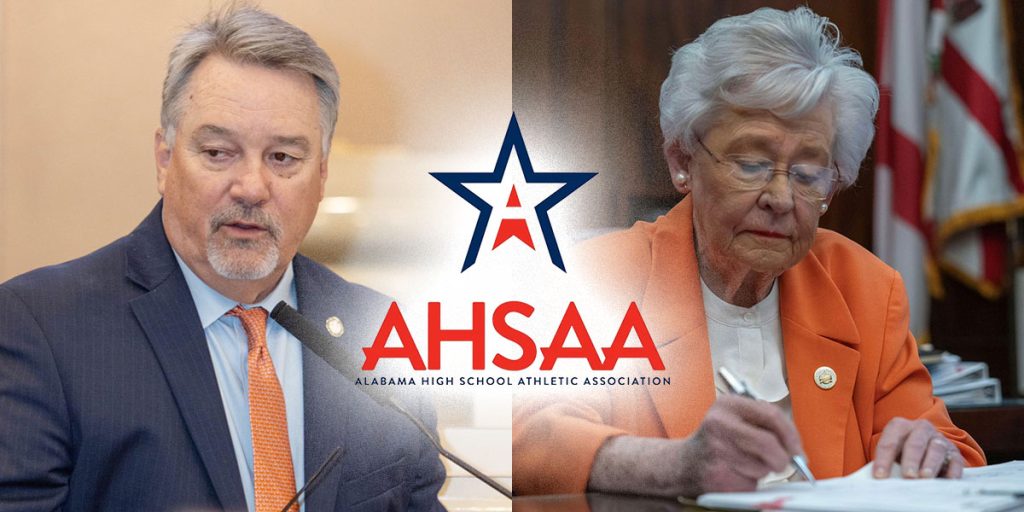MONTGOMERY – As a former educator, Gov. Kay Ivey has focused on education during her time as governor.
In her State of the State Address, Ivey emphasized that when she said passing her education savings account bill is her top legislative priority. The Creating Hope & Opportunity for Our Students’ Education (CHOOSE) Act sponsors and education budget chairmen, Sen. Arthur Orr and Rep. Danny Garrett, filed the bill Tuesday.
“Passing an education savings account bill that works for families and for Alabama is my number one legislative priority, and I am proud to have our education budget chairmen, Senator Arthur Orr and Representative Danny Garrett, carry the CHOOSE Act,” Ivey said Tuesday.
According to the governor’s office, the CHOOSE Act program would provide up to $7,000 per child enrolled at an accredited, participating private or public school through an education savings account funded by a new refundable income tax credit.
Additionally, families who opt for homeschooling could receive up to $2,000 per homeschooler, with a $4,000 cap for families with more than one homeschooler, for eligible educational expenses.
As the governor outlined during her address Tuesday, families would begin to participate in the program during the 2025-26 academic year. Year to year, the program would prioritize students with unique needs, participating students and their siblings for enrollment, Ivey said.
“Governor Ivey and her team were very receptive and collaborative to feedback from Representative Garrett and me in drafting the CHOOSE Act,” said Orr (R-Decatur). “Because of this, I believe we have crafted school choice/education savings account legislation that addresses the needs of an important segment of the needs of our school children while preserving the fiscal integrity of our public schools.”
In the initial rollout for the first two years, families with an income up to 300% of federal poverty level will be eligible, Ivey said. In the third year and beyond, any Alabama family will be eligible, placing the CHOOSE program on a pathway to becoming truly universal as the program grows.
“We must leave no stone unturned when it comes to providing the next generation of Alabamians with the opportunity to pursue an educational path that best sets them up for success,” said Garrett (R-Trussville). “I would like to commend Governor Ivey for proposing a plan that will help take school choice to the next level in Alabama.
“The CHOOSE Act will give hardworking parents a tool that has the potential to change the trajectory of their child’s educational future.”
The bill directs the Legislature to appropriate $100 million to the CHOOSE Program Fund annually, and the governor has already set aside $50 million for the fund in the Fiscal Year 2024 Education Trust Fund supplemental.
The CHOOSE Act has already garnered the support of Legislative Leadership with President Pro Tem Greg Reed and Speaker Nathaniel Ledbetter co-sponsoring the bill.
“Children are gifts from God, and they are the future of our great state. As legislators, one of our greatest responsibilities is to allocate resources in fiscally responsible ways to ensure that kids in our communities have every opportunity to be successful and achieve their dreams,” Reed (R-Jasper) said. “A family’s ZIP Code should not be the primary indicator of a child’s educational outcome, and we are committed to giving Alabama families the ability to make the best decisions regarding their children’s educations.”
Ledbetter (R-Rainsville) said the bill should have strong support in the House.
“My priority with school choice legislation has always been providing parents with additional options without negatively impacting Alabama’s public education system,” he said. “After working with the governor’s office on the CHOOSE Act for the last year, I feel that we have come up with a strong piece of legislation that accomplishes just that.
“I appreciate Governor Ivey’s leadership on this important issue, and I am proud to co-sponsor this legislation in the House.”
According to Ivey, the CHOOSE Act ensures accountability, while also protecting religious liberty and academic freedom. Along with other program rules, the testing requirement is simply a standardized assessment aligned to the curricula of the participating school, a nationally norm-referenced achievement assessment or a nationally recognized aptitude assessment of the participating school’s choice.
“My goal is to put us on a trajectory to make our program fully universal, while also maintaining our full and total support of public education,” Ivey said. “At the end of the day, I believe the CHOOSE Act – packaged with providing our K-12 teachers the highest starting salaries among our neighboring states – will help our public schools become even stronger.”











